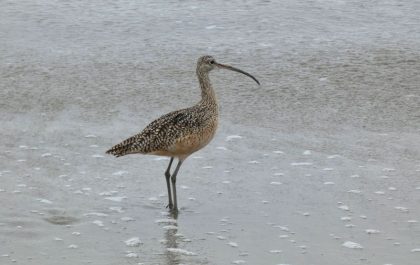The Lunar New Year arrives on February 1. Prepare to say goodbye to the patient, hard-working Ox, and hello to the fierce and volatile Tiger. This mythical animal is a symbol of strength and courage, but it is also unpredictable, an agent of change.
The Year of the Tiger isn’t the only thing in the forecast that is volatile: Santa Ana wind conditions will remain with us for the rest of the month, although not with the ferocity experienced last week, when the wind gauge at the 69 Bravo heliport above Topanga clocked winds at 70+ mph. It looks like there is a fair chance of rain in early February, and it can’t come too soon.
The confusingly named Colorado Fire on the Big Sur coast has reawakened fire fears in the Santa Monica Mountains.That blaze burned right down to the much-photographed Big Sur Bridge on Highway 1, shutting down the road and complicating evacuation efforts. The fire had burned 700 acres and was 40 percent contained when TNT went to press. It’s a grim reminder that fire is a year-round hazard throughout California’s wildland interface.
COVID-19 shows every sign of also becoming a year-round threat, an endemic disease instead of a pandemic. Learning to live with that threat will be a challenge that governments and individuals continue to grapple with as we navigate the third year dominated by the virus. There are signs that the massive surge of new cases and hospitalizations caused by the Omicron variant is beginning to wane, but this is not the time to relax precautions. Free sets of four at-home rapid Covid-19 tests are available through the US Postal Service, one per household, order at http://COVIDtests.gov
The New York Times’ Wirecutter blog offers some practical advice on reusing disposable N95 masks: place each used mask in a bag with the date on it and leave it there for five days to a week to ensure any viruses on it are no longer active. Never rinse, wash or spray a disposable mask, and discard if it becomes wet, soiled, or loose. Read more at www.nytimes.com/wirecutter/blog
We were happier here at TNT back when two-layer fabric masks were considered a viable alternative to disposable masks, because they could be washed and reused multiple times. Knowing that it is safe to reuse disposable N95s with precautions helps, but masks are an increasing environmental concern, turning up in creeks and streams, on the beach and in the ocean. The masks that protect us can be deadly to wildlife. Safe disposal is essential.
Does nature have legal rights? The worldwide Rights of Nature movement is arguing in court that it does. In the most recent case in the US, salmon are suing the City of Seattle, Washington, seeking acknowledgement of their legal right to historic spawning grounds on the Skagit River in the Sauk-Suiattle Indian Tribe’s reservation. The lawsuit, filed on behalf of the fish by the tribe, argues that the fish are currently blocked from traversing the river by hydroelectric dams that were built in the 20th century without the tribe’s—or the fishes—consent. The tribe seeks a declaratory judgment, an acknowledgment that the salmon are under the tribe’s jurisdiction, that the government knew that the dams would negatively impact them, and that the City of Seattle’s actions have violated the United Nations Declaration on the Rights of Indigenous Peoples.
The San Bernardino Kangaroo Rat, a small, gentle native rodent that is on the edge of extinction, could use some lawyers, too. Like the salmon in Washington, this species is also threatened by the impact of dams, this time in the Santa Ana River and its tributaries. The kangaroo rat is currently under consideration to be listed as an endangered species, but time is running out.
TNT readers can learn more at https://bit.ly/3rFNDMg and help by either sending an individual email of support for the listing to [email protected], or by signing onto a petition written by Dan Silver, Executive Director of the Endangered Habitats League, [email protected] with the subject “Kangaroo Rat.” Make sure to include the signer’s name and community, and hurry, the deadline for comments is January 31.
The salmon and the kangaroo rat are far away from the Santa Monica Mountains and the daily concerns of the residents here, but they are part of the complex web of issues that make up the wildland interface everywhere. In the words of 16th century poet John Donne, “any man’s death diminishes me, because I am involved in mankind.” The Rights of Nature movement asks us to be involved in the lives of all things, because we are involved not only with mankind, but with all of the life of this world. That’s a powerful resolution for the new year. A year of change.
Be well, stay safe. Welcome to the Year of the Tiger!





Loved the article. So much useful and important information. Nice to see the Rights of Nature expanding.